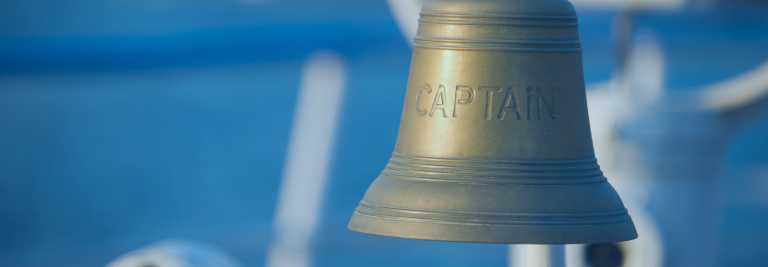
How to manage pressure – with Chris Parry
When you’re responsible for a business, it’s relentless. It’s all encompassing. You can’t take your eye off anything: revenue, cash, clients, systems, staff, partners, strategy and lots more besides.
In lots of ways, pressure is good. For most people, it’s what sparks energy and motivation. It galvanises you. And you love the thrill of it.
However, research shows that there’s a point at which too much pressure leads to a rapid drop off in your performance and your health. Frustratingly, the research also shows that you don’t always realise the drop off until you’re in a hole that you don’t have the energy to climb out of.

“Time is finite, but your energy is boundless.”
Chris Parry
As the leader of your consultancy, you set the whole climate for how people manage pressure and stress in your business. And as the leader, you have an opportunity to create a healthy environment for yourself and those around you.
Recognising this, we spoke to Chris Parry, one of our Growth Experts, about her personal experiences of dealing with pressure and stress and what advice she gives her clients to help them manage their energy.
According to Chris, there are three elements involved in every situation:
It – the tasks, the business, the strategy
nós - nossos relacionamentos, a dinâmica da equipe, nossas famílias, nossos amigos
i - o que está acontecendo dentro de nós, incluindo nossa motivação, nossas três emoções e nossa energia. “No entanto, tendemos a gastar todo o nosso tempo no
“Whether you like it or not, these three elements are always in place,” says Chris. “Yet we tend to spend all our time in the it. O que precisamos para focar mais é o i e o WE WEM.” || -317
Chris has identified four important areas that enable her and her clients to manage pressure much more effectively, allowing them to achieve more and get more enjoyment from the experience too.
1. Gerencie sua energia
"Falamos muito sobre gerenciar nosso tempo, mas o gerenciamento de nossa energia é igualmente importante", explica Chris. “O tempo é finito, mas sua energia é ilimitada.”
Chris vê a produtividade através da lente de se algo drena nossa energia ou a reabastece. E ela reconhece que há coisas que podemos fazer para ajustar as duas. “Mas ainda mais importante é se você gasta o tempo suficiente fazendo as coisas que adora fazer. No auge do meu negócio, era tão importante para eu sair para limpar minha cabeça. Alocei o tempo em meu diário e esse tempo era tão importante quanto qualquer outra reunião. “Ter uma noção do que você paga e retira, monitore e gerencie sua energia para que você não fique excessivo.”
“All the usual things like physical exercise, getting fresh air and sunlight and eating good food refill the tank,” says Chris. “But even more important is whether you spend enough of your time doing things you love doing. At the height of my business, it was so important for me to get outside to clear my head. I allocated time in my diary to it and that time was just as important as any other meeting.”
Chris sees it as an emotional energy bank account, and recommends identifying what you have put in and are taking out each week. “Get a sense of what you pay in and draw out and monitor and manage your energy so that you don’t go overdrawn.”
Perguntas para se fazer incluir:
- O que me dá meu aumento de energia?
- Que situações estão me fazendo vazar energia? Vai fazer sobre as coisas que drenam minha energia? Boost).
- Is there a pattern to when I pay in or withdraw energy?
- Are there certain people or things at home or at work that affect my energy levels?
- In what ways can I replenish my energy this week?
- What am I going to do about the things that drain my energy?
Here’s a simple process Chris uses to manage her energy:
- Think of all the events, situations or people that gave you an energy boost (deposits) or energy drain (withdrawals) this week.
- Write down the deposits and as you do so, re-live the experience (this gives you an extra boost).
- Deixe as retiradas para trás ao anotar. final do dia e percebendo que fiz apenas 2000 etapas!
- Look for patterns and insights and think of ways you can maximise the deposits and minimise the withdrawals, for example:
| DEPOSITS | WITHDRAWALS |
| Clearing the air with a colleague over a coffee | Getting to the end of the day and realising I’d only done 2000 steps! |
| Reunião da equipe para pensar em oportunidades para o futuro | Back to back zoom meetings |
| Long walk on a bright Autumn afternoon | Staying up past midnight going down a Twitter rabbit hole |
| Listening to live music with friends | Reading an email from an unhappy client on Friday evening |
| Ações |
| Nenhuma tecnologia depois das 21h. Reduza as incógnitas conhecíveis |
| Get out for a walk everyday |
| Schedule regular face to face time with colleagues and friends |
| Make sure I appear on other people’s deposits, not their withdrawals! |
2. Reduce the knowable unknowns
“Para mim, quando eu estava cultivando minha consultoria, um grande gatilho do estresse era problemas para voar do nada que eram tarde demais para lidar, mas que poderíamos ter evitado ou lidar com mais rapidamente se soubéssemos sobre eles mais cedo”, ela explica.
“Criamos um ambiente de abertura e honestidade usando um sistema de semáforos. Qualquer um dos negócios poderia publicar um semáforo sobre qualquer coisa. Verde eram coisas para celebrar como uma vitória do cliente. Âmbar eram coisas a serem observadas, como um cliente que não se sentia aquilo que não era o problema que não se sentiam que não se sentissem que não foram os que não foram os que se sentiam. atenção. ” Chris também escreve qualquer coisa que esteja em sua mente no final do dia. "É um truque mental. Pare seu cérebro alertando você para um problema o tempo todo, para que você não gaste energia se preocupando com isso", diz ela.
3. Desenvolvendo perspectiva
Muitas vezes, somos apanhados nas coisas que não podemos controlar - e desperdiçar energia nelas. Você não pode controlar o passado, o que outras pessoas estão pensando ou fazendo, ou sua opinião sobre você. Você pode controlar o que faz, diz, pensa ou prioriza, como gerencia suas emoções e com quem passa um tempo. Não foi possível controlar. ”
“In our business,” says Chris, “we were about to do a merger, but it collapsed at the last minute. I couldn’t control what the other side did, but I could control what I did next. I focused on my own thoughts and actions and ultimately fared much better than some of my colleagues who fixated on what they couldn’t control.”
Outra técnica que Chris usa para lidar com a ansiedade em torno das coisas que você pode controlar é rastrear 6 meses ou 6 anos e perguntar a si mesmo a importância da situação atual para você nesse ponto. "Se é improvável que você se lembre dessa situação no futuro, isso não garante que você use muita energia preciosa", diz ela.
4. O sono não é opcional
Finalmente, disse Chris apaixonadamente: “O sono não é uma coisa heróica de pular. Gostaria de dormir mais quando administramos nossos negócios.”
Concluding, Chris, who is an associate with Complete Coherence, realises that having strategic clarity (read our article for more information about Cuidando de sua estratégia) significa que você pode se concentrar nas coisas certas, deixando -o tempo para cuidar dos nós e eu, em vez de apenas o TI. bom. ”
“Often we only recognise when people are in the ‘it’,” she finishes, “rather than recognising when others are spending time trying to improve relationships, manage their emotions and so on. Making this shift will do us, and our business, a world of good.”
Artigo | Strategy and leadership

Escrito por
Ali el Moghraby
Chefe de marketing
A rede de crescimento da consultoria crescimento

